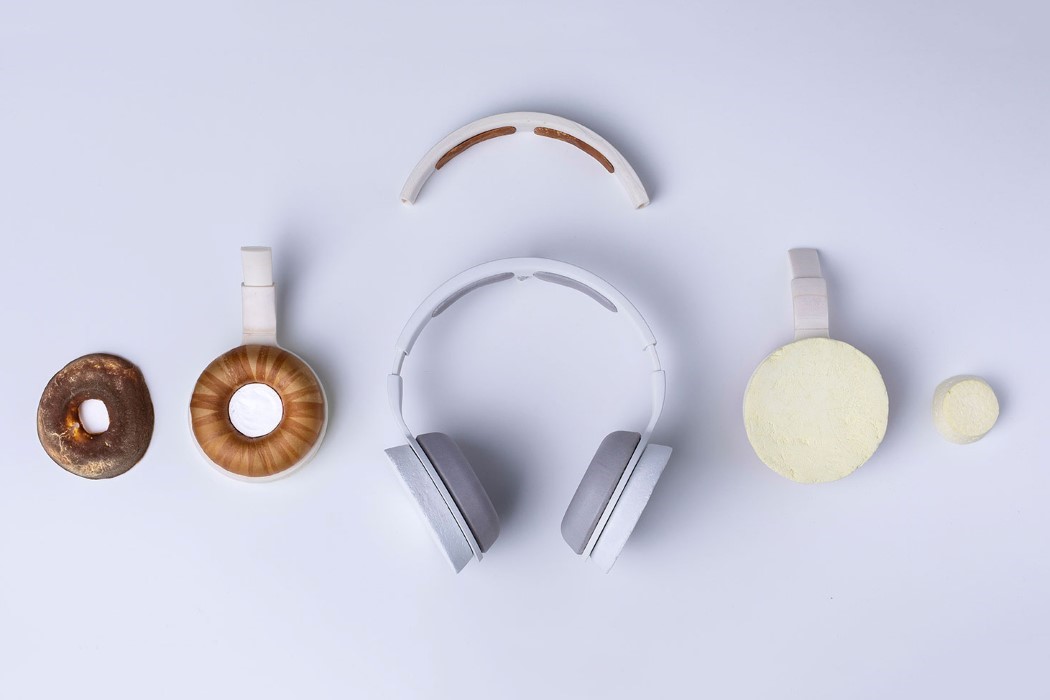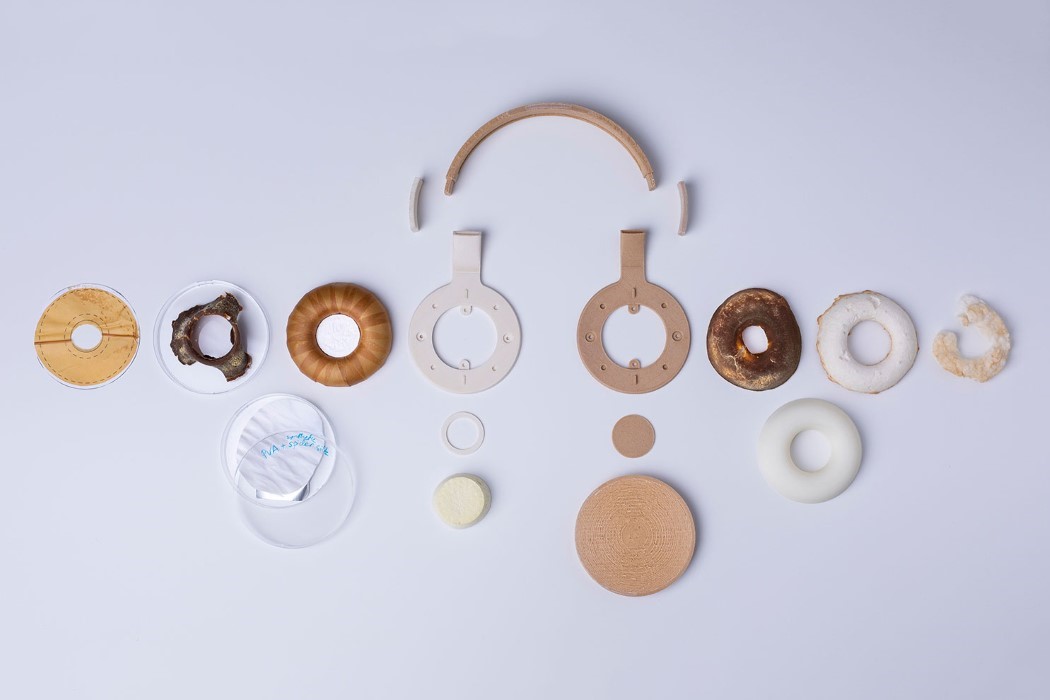
You’re bound to feel slightly bewildered when you hear the term “bio-headphones”. I was too, initially, when I read about the Korvaa. You see, the Korvaa isn’t your regular pair of cans. It isn’t made from plastic, memory foam, metal, leather, or wood (like some premium headphones). Korvaa, on the other hand, uses a more unusual genre of materials including stuff like fungi, bacteria (the good kind), and biosynthetic spider silk.
Created as an “experimental science collaboration that explores the design and functionalities of novel, bio-based, microbially grown materials”, Korvaa uses a fungal mycelia for the foam cups, fungi film as a leather substitute to cover the foam-cups, and microbial bio plastics for the outer body. Designed to explore the possibility of using new, bio-based materials to create regular consumer products, the headphones were perhaps the perfect playground. They have size, weight, and ergonomic constraints… plus they require parts that are both hard as well as soft. Korvaa required multiple iterations to arrive at the materials that were finally used in its construction. Some parts needed to be cultured and grown in a mold, while others needed to be freeze-dried to be worked with. At the end, Korvaa’s build was achieved using a combination of 3D printed yeast, while the foam in the cups was formulated using a combination of a foaming fungus-based protein known as Hydrophobin and a stabilizing plant cellulose. The leather-esque cover on the foam cups is, in fact, fungal mycelium, which lends a rich brown color to the off-white pair of headphones, and right on the inside, covering the audio driver, is a mesh-cloth created by spinning biosynthetic spider silk into a fabric.
An incredibly unusual experiment to begin with, Korvaa hopes to be a testing-zone for more bio-materials in the future. While this isn’t a pair of headphones you could pick up from your local electronics store (or laboratory, perhaps?!), it’s a great initiative to work towards developing and democratizing materials that contribute to a much more circular economy!
